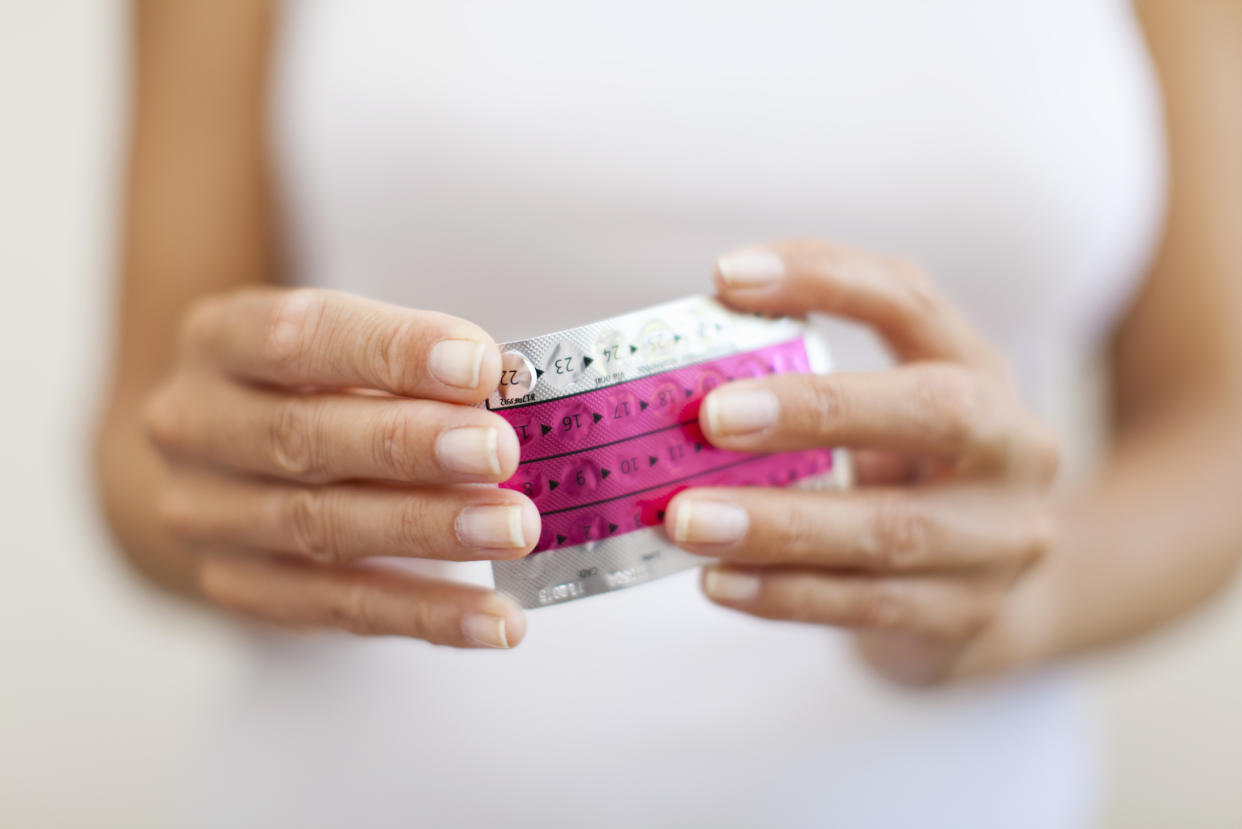Why is the Pill still being blamed for weight gain?

If you’ve ever been on orαl contraceptives — or considered going on them — you’ve probably wondered if you’ll gain weight. After all, your best friend laments that she gained 10 pounds after going on the pill in college, and your co-worker swears that her breasts swelled up to twice their size a few months after starting them.
But while tales of weight gain from birth control pills are rife among women, the truth is that research doesn’t support them.
One 2014 review looked at 49 studies and found no difference in weight gain between women on the pill or contraceptive patch and those not. Researchers even examined studies comparing types of pill and found no evidence that one was more or less likely to trigger weight gain than another.
Still, added pounds remain one of women’s biggest worries about oral contraception — so much so that a 2016 Penn State College of Medicine study concluded that it was driving some women’s choices.
“It’s probably the biggest concern voiced by my patients when they’re debating whether or not to go on oral contraceptives,” says Mary Jane Minkin, MD, a clinical professor in the department of obstetrics, gynecology, and reproductive sciences at the Yale University School of Medicine. “Unfortunately, we all tend to gain weight over the course of time — but usually, it’s not because of birth control pills,” she adds.
How this myth got started
Like any urban legend, this one has a whiff of truth. “When birth control pills were first invented in the 1960s, they carried very high levels of both estrogen and progestin — up to five times the amount of what’s in pills today,” Minkin explains. In high doses, those hormones can lead to weight gain because they cause fluid retention, which results in that bloated, difficulty-buttoning-up-your-pants feeling, the doctor says.
There’s also some evidence that progestin may increase appetite. But while this may have been the norm 50 years ago, today’s low-hormone pills should have minimal, if any, such effects. “I’ve seen this anecdotally in my practice,” Minkin says. “A patient will stop taking her birth control pills because she blames her weight gain on them, but nine times out of 10, she’s back six months later saying, ‘I didn’t lose a pound, doc, so I guess it wasn’t the pill after all!’”
You also don’t need to worry if you’re on most progestin-only types of contraception, including the mini pill or a progestin implant or IUD. A 2016 review of 22 studies concluded that there was little evidence of weight gain in women using these products compared with those using other birth control methods. The only exception? The progestin-only Depo-Provera shot, which is administered every three months to prevent ovulation. One University of Texas study found that women who used this method gained an average of 11 pounds and increased their body fat by 3.4 percent over three years. They were also about twice as likely as women using other hormonal or nonhormonal methods to become obese.
What to do if you do gain weight
If you’ve noticed some moderate weight gain (five to 10 pounds) since you’ve gone on the pill, let your doctor know. “There are women who are very sensitive to estrogen and will gain some water weight from fluid retention,” Minkin says.
Often, this disappears on its own after about three months. If it doesn’t, you can switch to the birth control pills Yaz, Yasmin, or Beyaz. All three contain a specific type of progesterone, drospirenone, which acts like a diuretic and helps get rid of extra fluid, Minkin says.
You can also always switch to a completely hormone-free, long-term contraceptive method such as the ParaGard IUD, which uses copper to prevent fertilization.
“If someone feels the pill is causing her to gain weight, as long as she has another good contraceptive measure lined up, it’s perfectly fine for her to just go off and see how she does,” Minkin says. “She just needs to use something.”
Otherwise, she may have more than a few extra pounds to worry about.
Read more from Yahoo Lifestyle:
What you need to know about Natural Cycles, the first FDA-approved pregnancy prevention app
What you need to know about hormones, the secret messengers regulating your mood
Follow us on Instagram, Facebook, and Twitter for nonstop inspiration delivered fresh to your feed, every day.
